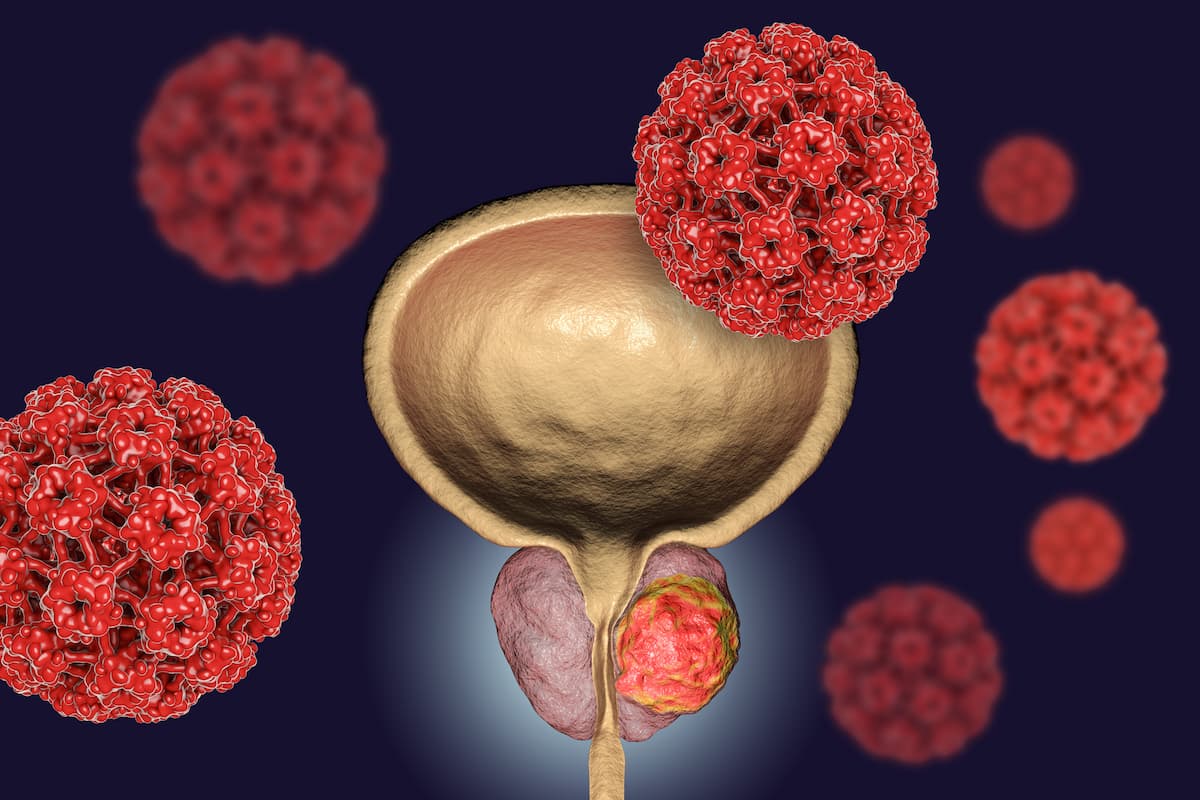Outcomes Improve With Darolutamide Vs Enzalutamide or Apalutamide in nmCRPC
Darolutamide produces a lower rate of discontinuation compared with enzalutamide or apalutamide among patients with non-metastatic, castration-resistant prostate cancer.
Treatment with darolutamide (Nubeqa) produced a lower likelihood of developing metastatic disease and treatment discontinuation compared with enzalutamide (Xtandi) or apalutamide (Erleada) in patients with non-metastatic, castration-resistant prostate cancer (nmCRPC), according to data from the DEAR trial (NCT05362149) presented at the 2023 Genitourinary Cancers Symposium.
"[Evidence from the DEAR study] further demonstrates the importance of treatment tolerability and the potential for longer treatment duration with darolutamide compared to enzalutamide and apalutamide, which may in turn improve treatment outcomes," according to an expert from Duke University School of Medicine.

“The real-world evidence study reinforces the favorable safety profile of darolutimide in the ARAMIS study population,” said Daniel J. George, MD, professor of medicine and of surgery at Duke University School of Medicine in Durham, North Carolina, during the presentation. “It further demonstrates the importance of treatment tolerability and the potential for longer treatment duration with darolutamide compared to enzalutamide and apalutamide, which may in turn improve treatment outcomes.”
Researchers conducting the DEAR study compared three second-generation androgen receptor inhibitors, which are considered the current preferred treatment option for nmCRPC. This comparison was done to determine real-world utilization of the drugs and examine the incidence of adverse events, which are the leading cause of treatment discontinuation for androgen receptor inhibitors.
Researchers assessed electronic medical records of 828 patients with nmCRPC. Patients were divided into 3 cohorts based on treatment: darolutamide (n = 340; median age, 80 years), enzalutamide (n = 367; median age, 79 years), and apalutamide (n = 121; median age, 80 years).
Treatment discontinuation or progression to metastatic disease occurred in 37% of patients (n = 340) treated with darolutamide compared with 51% (n = 187) of patients treated with enzalutamide and 51% (n = 62) of those treated with apalutamide. The median time to discontinuation or progress to metastatic disease was not reached in the darolutamide group (95% CI, 30.1-NA). In contrast, these events occurred at a median of 23.1 months (95% CI, 18.2-26.4) in the enzalutamide group and 20.5 months (95% CI, 12.3-27.2) in the apalutamide group.
The most common reasons for treatment discontinuation included adverse events, progression to metastatic disease or death, and switching to another androgen receptor inhibitor. George noted that a lower proportion of patients in the darolutamide experienced these events compared with the other two groups.
In particular, adverse events occurred in 9.7% of patients in the darolutamide cohort, 14.4% in the enzalutamide cohort and 15.7% in the apalutamide cohort. Progression to metastatic disease or death was observed in 8.8% of patients treated with darolutamide, 12% in those treated with enzalutamide and 13.2% in patients treated with apalutamide.
Study authors posit the favorable outcomes in patients treated with darolutamide may be attributed to “to darolutamide being a structurally distinct (androgen receptor inhibitor) with low potential for blood–brain barrier penetration,” the researchers wrote in the abstract.
Reference
George DJ, Khan N, Constantinovici N, et al. Real-world use of darolutamide, enzalutamide, and apalutamide for non-metastatic castration-resistant prostate cancer (DEAR). Presented at: 2023 American Society of Clinical Oncology Genitourinary Cancers Symposium; February 16-18, 2023; San Francisco, CA. Abstract 332.